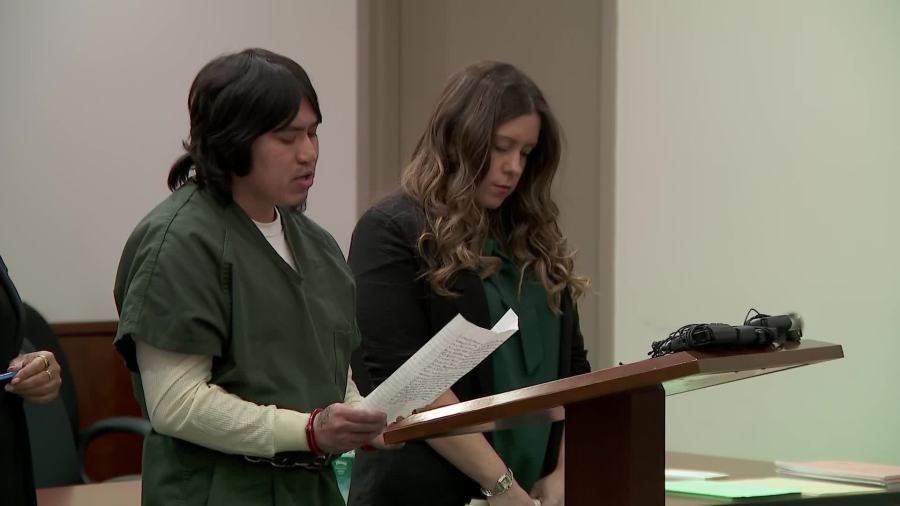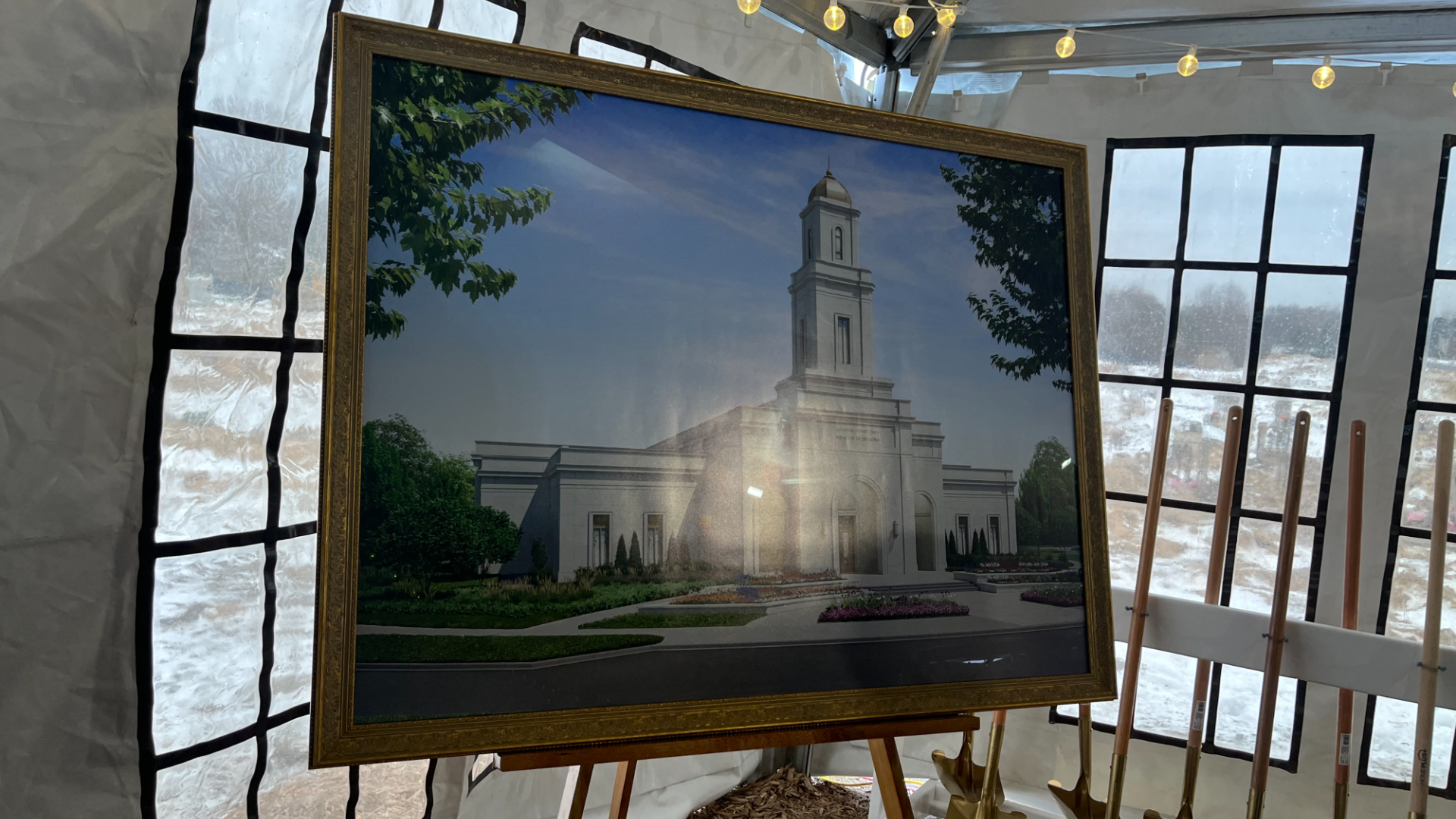GRAND RAPIDS, Mich. (WOOD) — A man who shot and killed his girlfriend and then left her body along a Grand Rapids freeway will spend decades in prison.
“You, sir, are a cold-blooded murderer,” Judge Mark Trusock told Brandon Ortiz-Vite at sentencing Thursday. “This is an intentional crime, and you are a danger to society. You are a very violent individual, and you need to be removed from society.”
Ortiz-Vite, 26, was sentenced to 37 to 100 years in prison, with an additional two years for felony firearm. He was also sentenced to a concurrent 20 to 80 years for carjacking and three to five years for carrying a concealed weapon. He received credit for 228 days served.
“I hope every single night, you think about the damage that you did to this family and what you did to this young lady,” Trusock said.
Ortiz-Vite pleaded guilty in September to the four counts in the March 22 murder of 25-year-old Ruby Garcia, who authorities identified as his girlfriend. Her body was found shortly before midnight on southbound US-131 near Leonard Street.

The judge described it as “a cold-blooded, intentional killing.”
“This was a situation, sir, where you took the life of Ruby Garcia, who was a young lady who had everything in front of her,” Trusock said.
No victim impact statements were presented Thursday, but before he learned his sentence, Ortiz-Vite addressed the court.
“I know that right now, my words hold little, if any, value to the Garcia family, which is understandable. As a man, I stand before you humbly, full of guilt and shame for unrightfully, unjustifully taking the most valuable gift granted to us all: life,” he said. “I make no excuse for my behavior. I do, however, realize how drug abuse and not understanding how to identify your emotions alters the mind’s ability to make sound decisions. … I can’t explain my mind that night. However, deep down within, I knew I was wrong.”
In a May hearing, a state police detective sergeant testified that Ortiz-Vite told him he hadn’t planned to kill Garcia that day. The detective said Ortiz-Vite had been drinking and using cocaine. Ortiz-Vite told police he was upset because Garcia wanted to break up with him after about a year together.
“You were arguing with her, this was on US-131,” Trusock said, addressing Ortiz-Vite at sentencing. “You ended up shooting her multiple times. She was shot in the chin, the left temple, the upper arm, the hand, the head. And you started shooting when you were in the car and then you took her out of the car, put the gun to her head, pulled the trigger and shot her again. There is just no justification or excuse for this.”
Ortiz-Vite was arrested March 24 after he called Allegan County 911 from Ganges United Methodist Church. According to the pastor, Ortiz-Vite had spent the night there.

“The moments leading up to me turning myself in were spent in a church, not making me a saint but evidence to myself that I was still human and God never abandons you, even in your darkest hour,” Ortiz-Vite said Thursday.
Immigration officials have said that Ortiz-Vite, a native of Mexico, entered the United States illegally as a child but was approved to stay under the Deferred Action for Childhood Arrivals program. According to U.S. Immigration and Customs Enforcement, his DACA status expired in 2019, and he was deported in September 2020 following an impaired driving arrest. It’s not clear when he returned to the U.S.
The case drew attention from former President Donald Trump, who, during an April stop in Grand Rapids, blamed President Joe Biden’s border policy for Garcia’s death.
Before he was sentenced, Ortiz-Vite said his actions did not represent his community.
“I want to apologize to my community, my Latino/Hispanic/Mexican community. I am a proud Mexican national whose actions have brought great shame and dishonor to our people, our people who come to the United States in search for a better living — a dream that I have taken for granted, which has filled my heart with shame,” Ortiz-Vite said Thursday. “The actions I took on the night of March 22 do not define who my people are. I apologize with the utmost respect to all immigrants from all walks of life.”
According to Kent County Prosecutor Chris Becker, as the law currently stands, Ortiz-Vite will serve at least 39 years in the Michigan Department of Corrections before deportation becomes an option.
“You serve that time here because you’re being held accountable for the crimes you committed here,” he explained.
The prosecutor, speaking with reporters after sentencing, described Garcia’s death as a domestic case.
“It’s not just illegals who are doing this. It can happen to anybody,” Becker said. “Domestic is an issue that happens across the board, be it socioeconomic, race, gender.”
He said it’s been a “tough road” for Garcia’s family since March 22.
“This is a sister. Whatever the politics, this is their sister. This is a loved one. This is a family member. They’re destroyed. They’re emotional. They’ve been emotional every time I’ve spoken with them,” he said. “They conveyed that emotion in their letter to the judge: how much this has had an impact on the family and how much it rips away a loved one that, as the judge said, she had her whole life ahead of her, had a bright future, was a wonderful person. And she’s gone.”











